How to Clean Strawberries So They’re Safe and Last Long, Experts Say

There’s nothing better than having produce available in your fridge to snack on or cook with—especially fresh strawberries. But as tempting as they may look, those ripe, red berries aren’t ready to eat right away. Besides storing your fruit so it lasts as long as possible, it’s also essential to make sure it’s thoroughly cleaned so it’s safe to consume. Read on to learn how to clean strawberries, according to food safety experts.
RELATED: How to Safely Store Fruit to Keep It Fresh and Tasty.
Why Is It Important to Wash Strawberries?
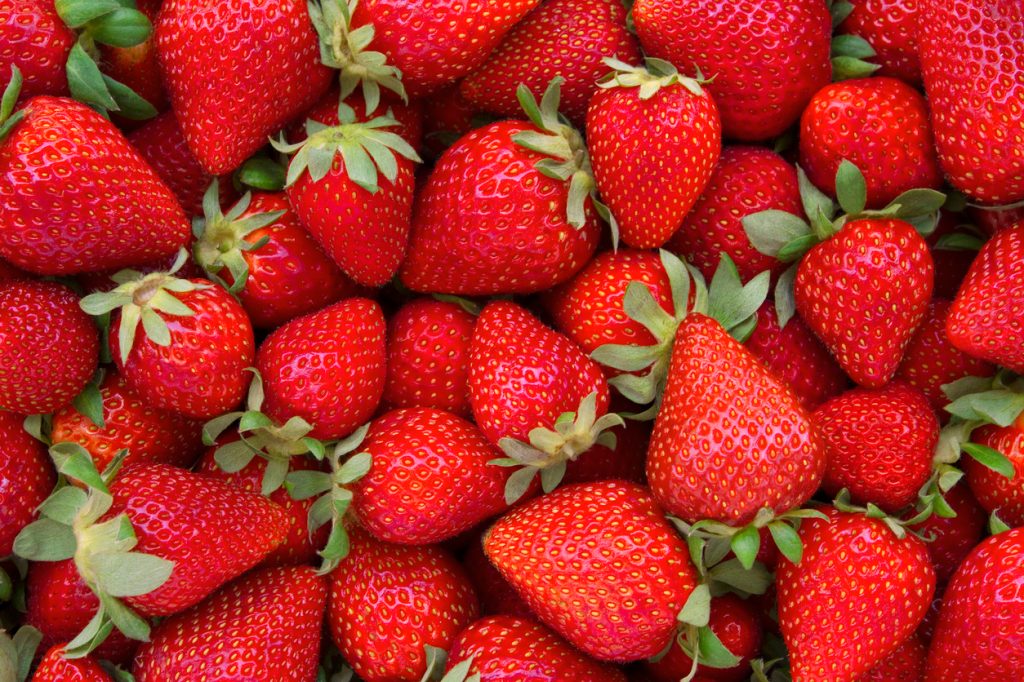
With their glistening red, dimpled skin, fresh berries can be one of the most tantalizing items in any spread. But whether they’re coming from your garden, the farmers market, or the grocery store, washing strawberries before you eat them is an essential step.
“It’s important to wash strawberries to remove dirt, pesticides, tiny bugs, and any bacteria or contaminants that may be on their surface,” explains Bridget Vickers, associate dean of students at the Institute of Culinary Education’s Los Angeles campus. “Since strawberries are often eaten raw, thorough washing ensures they are safe to consume and keeps our customers safe.”
How Does Cleaning Strawberries Help Them Last Longer?
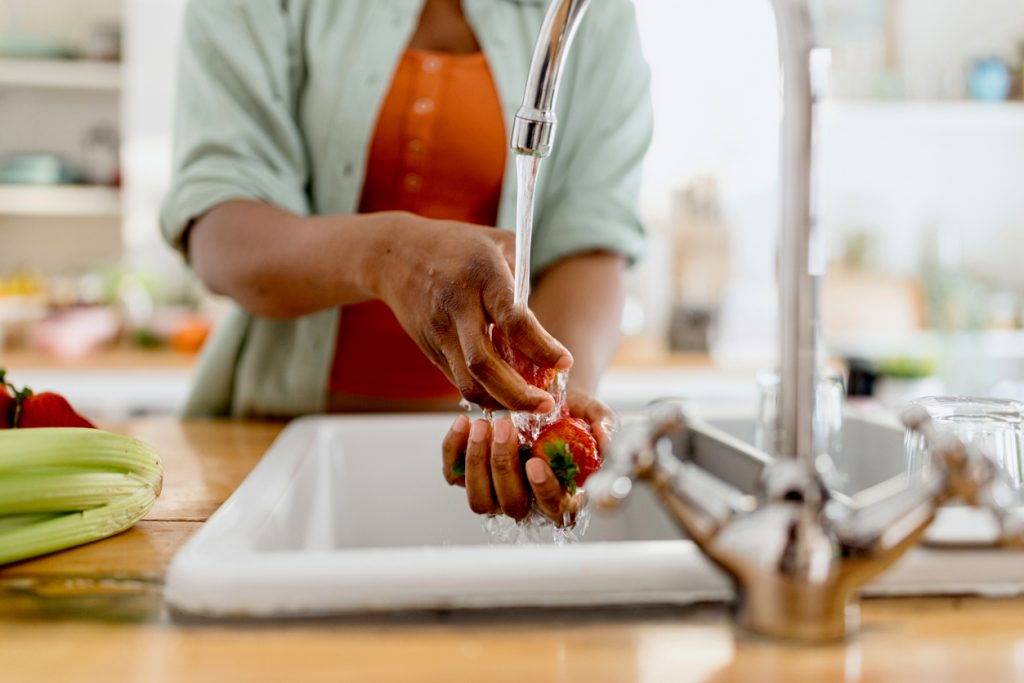
Taking the time to clean strawberries isn’t just about removing pathogens and contaminants that could be hazardous to your health. Experts say there’s another considerable benefit, too.
“Cleaning strawberries removes spoilage microorganisms and external insects, thus extending the life of the berries,” says Jill Roberts, PhD, associate professor of public health at the University of South Florida.
However, this is also why it’s crucial to dry them properly after washing.
“Excess moisture can promote mold growth,” Vickers cautions. “Properly cleaned and dried strawberries stored in the right conditions can stay fresh longer.”
RELATED: How to Safely Store Vegetables to Keep Them Fresh and Tasty.
How to Clean Strawberries
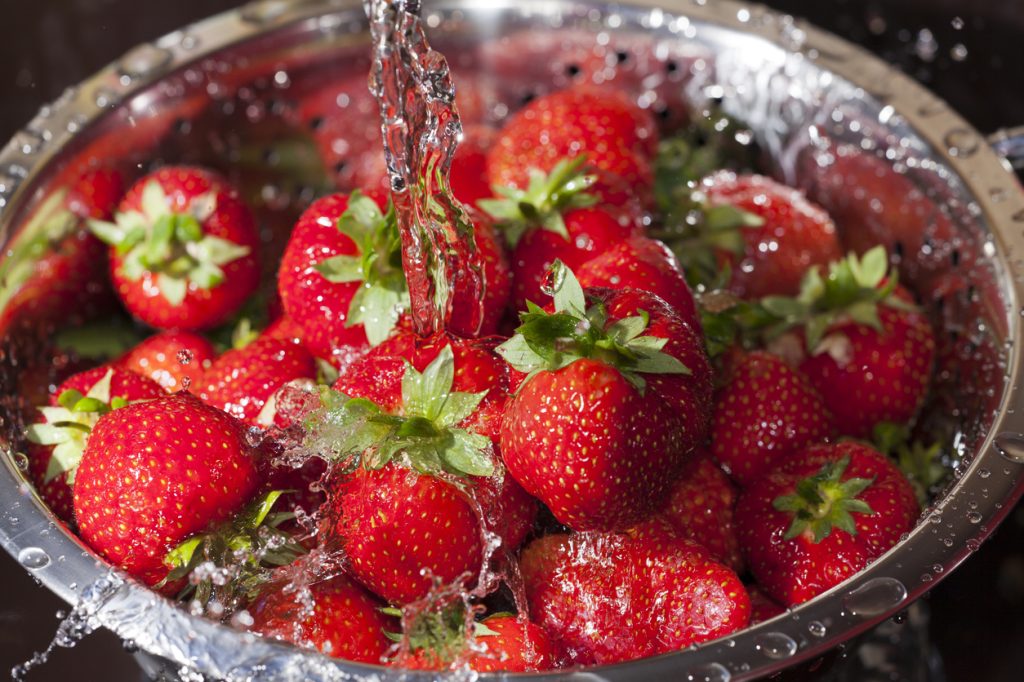
Ready to turn those unwashed strawberries into a nice snack or use them in a recipe? Here’s the right way to clean strawberries, according to food safety experts.
Wash your hands.
Unfortunately, germs and bacteria can still work their way onto your unwashed berries even after you’ve brought them into your kitchen. As with any preparation for foods that will be consumed raw, you should always start by washing your own hands.
Remove damaged or moldy berries.
The next step is to pick through your fruit and inspect it for quality. Notice any damaged, bruised, or moldy berries? Pull them out and throw them away to avoid contaminating the bunch by promoting spoilage. If you don’t want to waste an entire piece of fruit, you can also trim off bruised or damaged areas with a paring knife.
Dry the strawberries and store them.
If you’re not planning on eating them right away, you can then dry the strawberries with paper towels and transfer them to a clean glass container such as a large bowl. You can then place them in the crisper drawer of your fridge and store them as close to 40 degrees Fahrenheit as possible.
Soak the strawberries.
Once you’re ready to eat some or all of your fruit, take as many berries as you’ll need out of the fridge and place them in a large bowl of cold tap water with a very small amount of white vinegar, apple cider vinegar, baking soda, or salt water. Then, allow them to soak for about five minutes to kill the microorganisms on their surface.
Bryan Quoc Le, PhD, a food scientist and author of 150 Food Science Questions Answered, tells Best Life that you can also clean strawberries with salt by soaking them in warm water. Simply follow the same steps and let sit for at least one minute.
Rinse the fruit.
The next step is to begin rinsing the strawberries with cold running water for about a minute. Then, thoroughly dry them with a paper towel or clean kitchen towel once again before serving or consuming them. You can also store strawberries in the fridge again after washing them if you don’t finish them all right away.
RELATED: How to Cut a Watermelon Perfectly Every Time.
Will Washing a Strawberry Affect the Flavor?

Besides likely improving the flavor by removing dirt and other contamination, you have nothing to lose by taking the time to clean strawberries properly. However, if you’re soaking your strawberries with vinegar or salt in cold water, you might want to make sure to set a timer.
“Prolonged exposure to water can make them waterlogged and dilute their natural sweetness,” warns Vickers.
You may also want to limit how many you clean at once if you’re not going to be finishing them in one sitting.
“Washing strawberries before you’re ready to eat them can cause them to deteriorate faster in the refrigerator and lose flavor over time,” Le tells Best Life.
RELATED: How to Cut a Pineapple Perfectly Every Time.
How to Store Strawberries
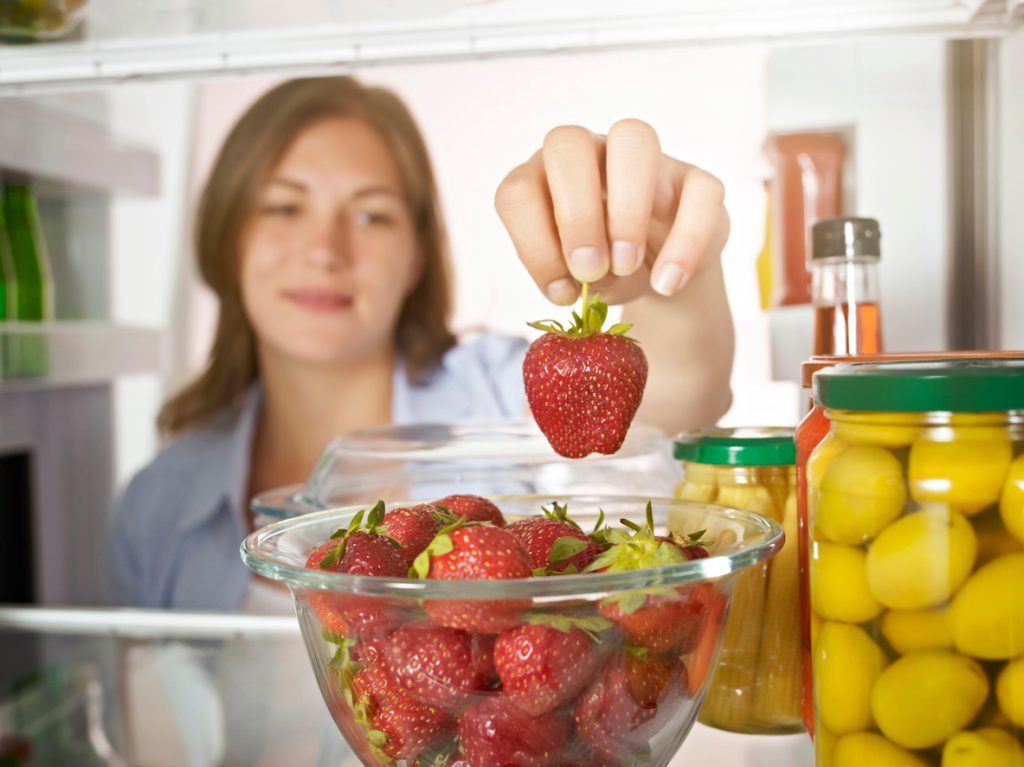
Getting the most out of your fruit isn’t just knowing how to get strawberries squeaky clean. How you store them can also have a big effect on how long they keep and how fresh they taste. When properly prepared, strawberries typically last in the fridge for a maximum of 18 days.
“For long-term storage, strawberries can be frozen,” says Roberts. “I recommend storing strawberries frozen for up to six months, but while there is no food safety risk with longer storage, the quality tends to decline.”
Worried about them going bad?
“I recommend storing strawberries at the front of your fridge in your line of sight so you are less likely to forget about them and can include them in your diet throughout the week,” says Shelley Balls, registered dietitian nutritionist and nutritionist for Consumer Health Digest. “To slow spoilage, you’ll want to store strawberries whole if you can. If a recipe calls for sliced strawberries, try to slice them close to when you’ll be serving the food for best results.”
RELATED: 13 Worst Items to Store in Your Pantry.
Best Things to Serve With Fresh Strawberries
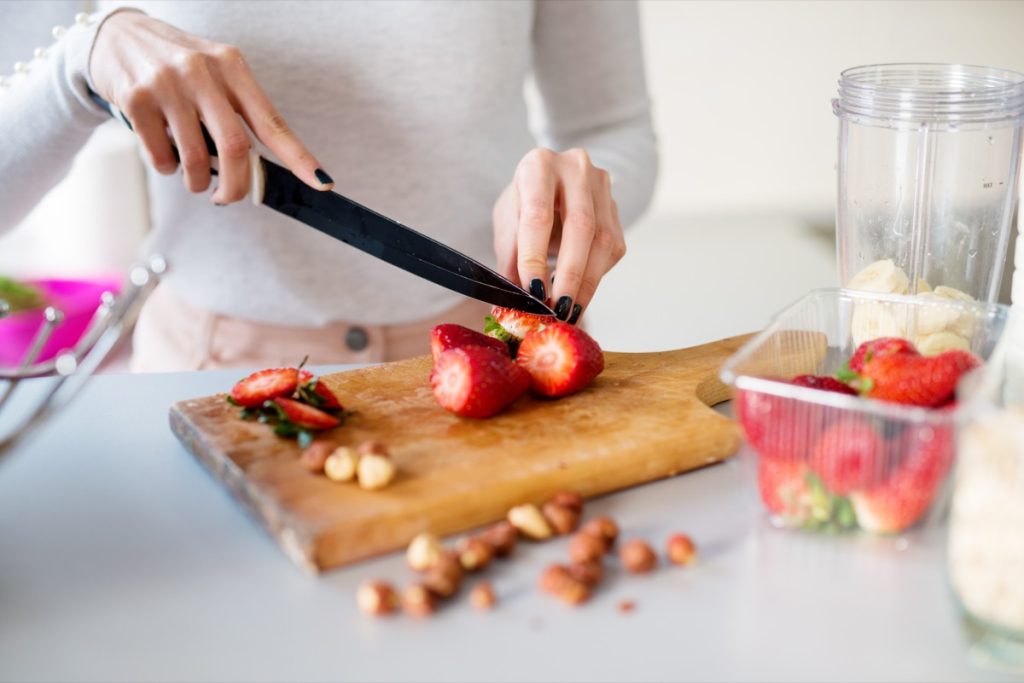
Whether they’re organic strawberries from the market or freshly picked from your backyard, most people would agree that the ripe red fruit rarely needs anything added to be a delicious snack.
“To promote healthy eating habits, I recommend rinsing strawberries when you get home or soon after when your schedule allows, so they can be an easy option to turn to when you start feeling hungry,” Balls advises. “Sometimes just having to wash produce turns some people away and towards less nutrient-dense foods such as chips.”
Fortunately, strawberries are also incredibly versatile and pair well with a variety of foods.
“Pair strawberries with a stick of mozzarella cheese, or your favorite nuts for a balanced and nutrient-dense snack or appetizer,” she suggests. “For a tasty dessert, you can serve them with English custard sauce, dip them into chocolate fondue, or use them as a topping or filling for cakes, cheesecake, pastries, and pies—my favorite is strawberry and rhubarb!
You can also add them to salads for a sweet and tangy twist, or throw sliced strawberries into yogurt, oatmeal, or cereal for breakfast.
“I love to include them on charcuterie boards served with soft cheeses like brie, goat cheese, or ricotta,” Balls adds. “And let’s not forget, they can be used in a variety of smoothies, cocktails, or as a simple garnish for drinks.”
Conclusion
It’s not uncommon to wonder, “How do I wash strawberries the right way?” Whether you’re planning to store them or eat them right away, experts say the best method involves removing any damaged or moldy berries from the bunch and rinsing strawberries in cold running water for about a minute. You can then soak them in cold water with baking soda, white vinegar, apple cider vinegar, or salt water before rinsing them once again and drying them off.
Cleaning strawberries not only makes them safe to eat, but can also help them last longer in your fridge by removing mold and bacteria. This way, you can count on having delicious fruit available for a healthy snack or easy fresh ingredient for days to come.